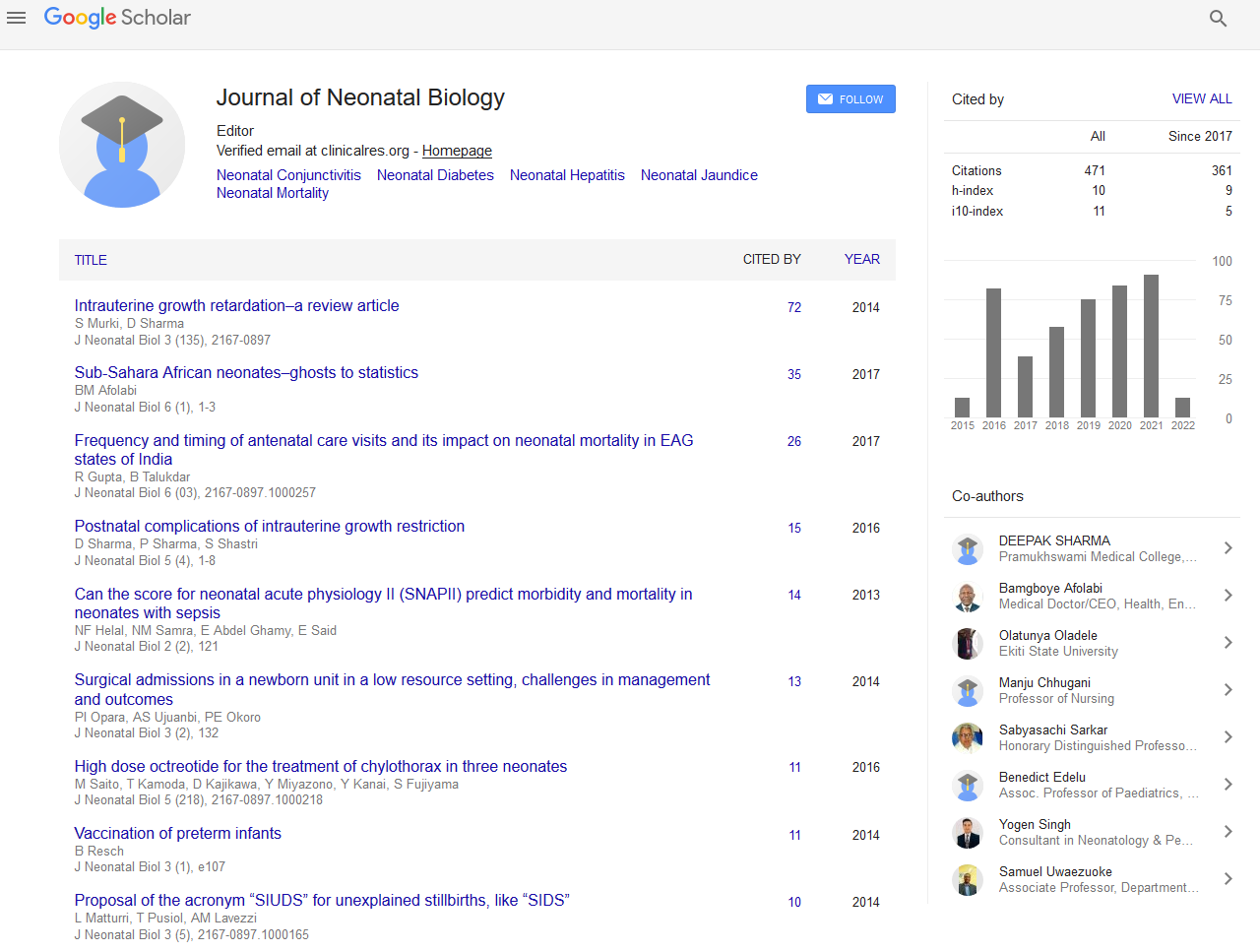PMC/PubMed Indexed Articles
Indexed In
- Genamics JournalSeek
- RefSeek
- Hamdard University
- EBSCO A-Z
- OCLC- WorldCat
- Publons
- Geneva Foundation for Medical Education and Research
- Euro Pub
- Google Scholar
Useful Links
Share This Page
Journal Flyer

Open Access Journals
- Agri and Aquaculture
- Biochemistry
- Bioinformatics & Systems Biology
- Business & Management
- Chemistry
- Clinical Sciences
- Engineering
- Food & Nutrition
- General Science
- Genetics & Molecular Biology
- Immunology & Microbiology
- Medical Sciences
- Neuroscience & Psychology
- Nursing & Health Care
- Pharmaceutical Sciences
Abstract
Face to Face Counseling is Associated with Higher Exclusive Breast Feeding Rates at Six Weeks Compared to Audio-Visual Aids: A Randomized Controlled Trial
Kanchan Sharma, Vinod Sharma and Pradeep Kumar Sharma
Background: Exclusive breast feeding rates are low in many countries including India despite its innumerable benefits. Counseling of mothers and use of audio-visual aids are among the strategies to promote exclusive breast feeding.
Objective: To study the efficacy of face-to-face counseling and using audio-visual aids on exclusive breast feeding rates at six weeks postnatal age.
Design: Randomized controlled trial Setting: Tertiary care neonatal unit Study period: January 2009 to June 2010 Subjects and methods: We randomized mothers with singleton births at gestation ≥ 36 weeks into three groups: face-to-face counseling, video demonstration of a film on breast feeding and standard care. The infants were followed up at six weeks for evaluation of exclusive breast feeding. Results: There were 1411 mothers randomized of whom 629 (44.6%) followed up at six weeks. Face-to-face counseling was associated with a significant increase in exclusive breast feeding rates at six weeks, 271/326 (83.1%) versus 97/135 (71.8%); adjusted odds ratio 1.87 (95% CI 1.15-3.04; p=0.01). There was no effect of video demonstration 117/168 (69.6%) on the same, adjusted odds ratio 0.93 (95% CI 0.55-1.56; p=0.67). The infants in the face-to-face counseling group required less hospitalization during the first six weeks of life 16/326 (4.9%) than in the control group 15/135 (11.1%); odds ratio 0.41 (95% CI 0.20-0.86; p=0.02). There was no effect of video demonstration 10/168 (6.0%), odds ratio 0.71 (95% CI 0.47-1.08; p=0.11).
Conclusions: Face-to-face counseling of mothers was associated with increased rates of exclusive breast feeding and decreased need for hospitalization of infants during the first six weeks of life. There is no effect of video demonstration of a film on breast feeding on the same.


